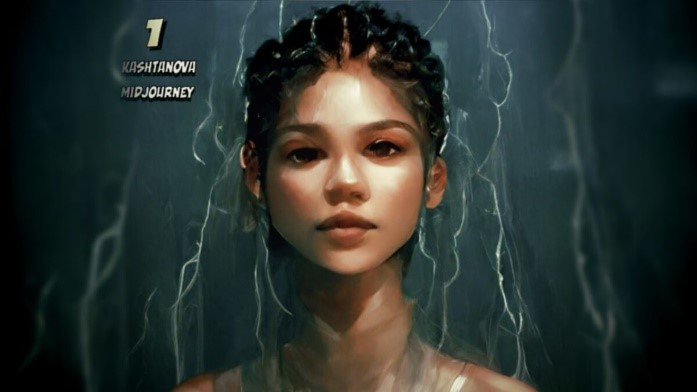At a Glance
- On March 16, 2023, the U.S. Copyright Office issued a policy statement which stands firmly behind the requirement that copyright protection is limited to human authorship. The policy acknowledges that technological tools can be part of the creative process, but there is a concern as to the extent to which a human has creative control over the traditional elements of authorship.
- Generative AI also raises patent issues of who is considered an inventor of content that generative AI models create and how methods, systems or devices that incorporate generative AI techniques can be claimed.
Generative artificial intelligence (AI) is an innovative new technology that is being rapidly developed for integration into a wide variety of products.
Recent Copyright Applications Involving AI-Generated Content
The U.S. Copyright Office reviewed two applications for registration in recent months that involved AI-generated works. The first application was submitted by Kristina Kashtanova for a work titled "Zarya of the Dawn."

After initially receiving a certificate of registration, the certificate was later revoked, and a new certification issued, due to public statements that AI was used to create the work. The new certificate excluded protection for the visual images, which were created using Midjourney. The registration excluded the visual images because they "were generated by the Midjourney technology" and "are not the product of human authorship."
The second application involving AI-generated content was submitted by Stephen Thaler for the work titled "A Recent Entrance to Paradise." Thaler disclosed to the Copyright Office that Midjourney was used to create the work, and as a result, the application was denied registration. Thaler filed a lawsuit challenging this decision. In response, the district court ruled that only works created by humans are eligible for copyright protection under U.S. law.

Copyright Office Policy Developments
On March 16, 2023, the Copyright Office issued a policy statement which stands firmly behind the requirement that copyright protection is limited to human authorship.
The policy acknowledges that technological tools can be part of the creative process, but there is a concern as to the extent to which a human has creative control over the traditional elements of authorship. The policy makes clear that applicants have a duty to disclose the inclusion of AI-generated content in a work submitted for registration and to provide a brief explanation of the human contribution.
Applications previously submitted must be corrected if AI is more than de minimis and was not disclosed. If an application did not disclose AI and a certificate was issued, then a supplementary registration must be submitted.
Generative AI Patent Considerations and Claiming Strategies
Generative AI raises issues of who is considered an inventor of content that generative AI models create and how methods, systems or media that incorporate generative AI techniques can be claimed. Regarding inventorship, in 2022, the U.S. Court of Appeals for the Federal Circuit held in Thaler v. Vidal that the Patent Act requires that inventors must be natural persons; that is, human beings.
Regarding claiming strategies, it is important to recognize that generative AI, while a relatively new technology, is still an algorithm for which the general techniques are now publicly known. Accordingly, while the general concept of a generative AI algorithm is not novel, there may be innovative implementations or incorporations of generative AI algorithms for which patents may be obtained.
AI patents, if granted, may also suffer from detectability issues, e.g., being able to detect if an infringer is actually using AI in the same way as claimed. Thus, claims directed toward generative AI can be drafted with the detection of claimed aspects in mind. For example, infringing aspects of a system that uses generative AI may be detected by monitoring inputs of the generative AI model and comparing a similarity of the monitored inputs/outputs to inputs/outputs of a claimed system that uses generative AI. Aspects of generative AI systems that interface with users or other systems may be relatively more detectable than back-end processes since they are more visible/traceable.
.svg?rev=a492cc1069df46bdab38f8cb66573f1c&hash=2617C9FE8A7B0BD1C43269B5D5ED9AE2)


